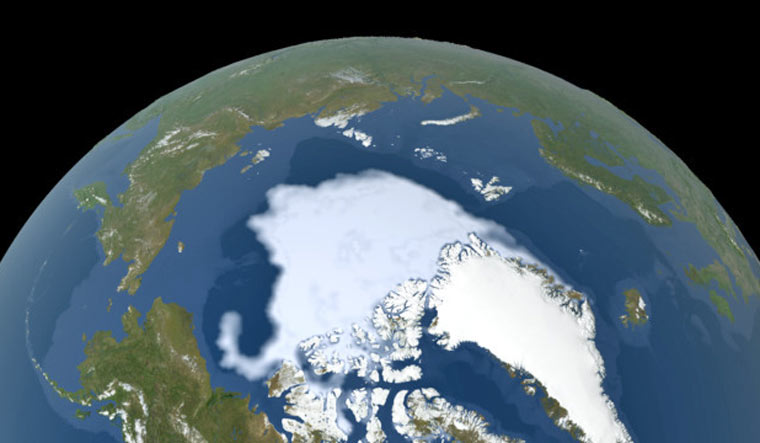Scientists, after the biggest-ever expedition to the Arctic, warn that global warming may already have reached the point of no return.
Markus Rex, the scientist, who led the expedition told AFP on Tuesday, “The disappearance of summer sea ice in the Arctic is one of the first landmines in this minefield, one of the tipping points that we set off first when we push warming too far.”
The expedition costing $165m involved 300 scientists from 20 different countries. At the expedition, scientists found that arctic ice is retreating faster than ever.
The expedition that lasted for 389 days, returned to Germany in October. Scientists collected data based on readings on the atmosphere, ocean, sea ice and ecosystems.
“The disappearance of summer sea ice in the Arctic is one of the first landmines in this minefield, one of the tipping points that we set off first when we push warming too far,” Rex said and warned that we could have ice-free summers in just decades.
“Only evaluation in the coming years will allow us to determine if we can still save the year-round Arctic sea ice through forceful climate protection or whether we have already passed this important tipping point in the climate system,” he said, adding that we needed to act ‘quickly’.
Scientists from the expedition brought back 150 terabytes of data and more than 1,000 ice samples. The sea of information collected would help understand weather patterns for 50-100 years.
Scientists collected and studied water samples from beneath the ice to study plant plankton and bacteria to understand how the marine ecosystem functions under extreme conditions.
Stefanie Arndt, who specialises in sea ice physics, said that we would probably be the last generation to witness an Artic which has a sea ice cover during summer. “This sea ice cover is gradually shrinking and it is an important living space for polar bears,” she added.
At the G7 summit that concluded on June 13, state heads said they would raise $100 billion a year to help poor countries cut emissions—the promise was made by developed countries in 2009, but the target wasn’t met. Leaders of the nations present at the summit said that they are committed to keeping the projected global temperature rise to 1.5 deg. C. At the summit, the G7 nations also said that they would offer up to £2bn ($2.8bn) to developing countries to stop using coal.




